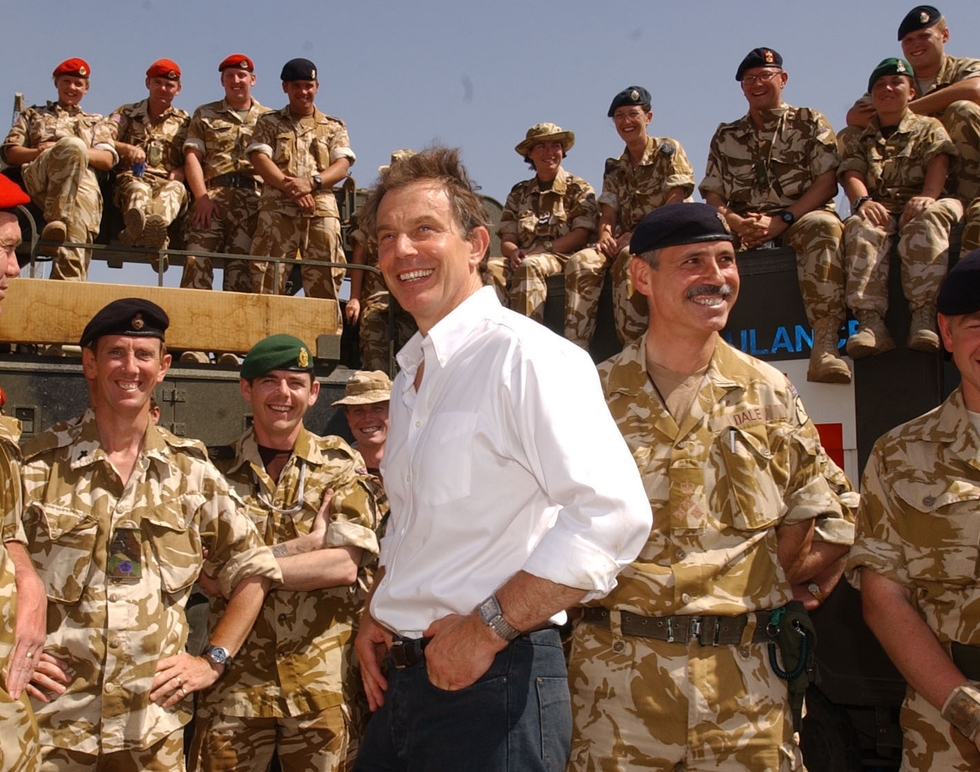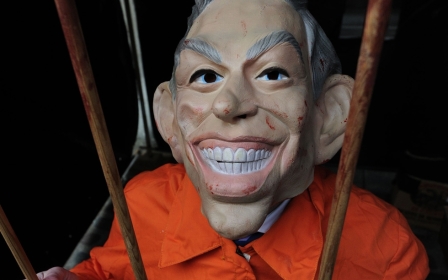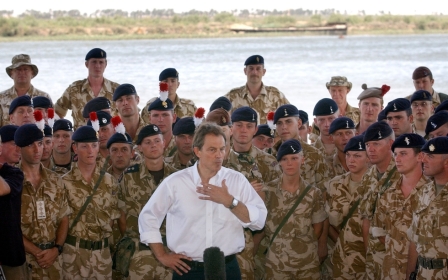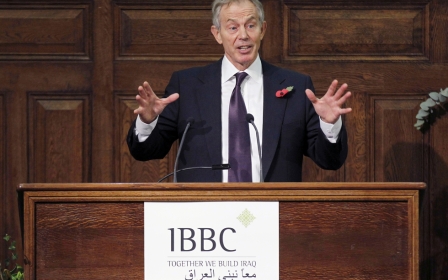Let's have a serious debate about Chilcot, and stop claiming Blair is a war criminal

In the hope that there will be a factual and measured debate about the Chilcot report when it is published, allow me to explain why I think it will fail to confirm three things that are commonly believed. They are:
1. Britain and America invaded a mostly Muslim country for oil
2. Tony Blair lied about Saddam’s weapons of mass destruction
3. The war was illegal, and Blair is a war criminal.
The first is worryingly common in the Middle East media: that Tony Blair and George Bush are anti-Muslim and motivated by greed for oil. If you think about the first part for a moment, it is curious: that the purpose – not the accidental side effect, but the aim – of western foreign policy is to oppress Muslims.
It is a strange view to hold of Blair in particular, who is regarded as a hero in Sierra Leone, a predominantly Muslim country, for saving it from the murderous regime of Foday Sankoh, and in Kosovo, whose Muslim population praises him for saving them from the “ethnic cleansing” of Slobodan Milosevic.
Nor is the idea that the Iraq war was for oil soundly based. If gaining control of Iraq’s oil reserves was the motive of the US government, it secured a poor deal. The war cost the American taxpayer $1.5tn, and the biggest customer for Iraqi oil is now China.
Once those misconceptions about motives are out of the way, it should become clearer that the Iraq war, disastrous as it was, arose out of an attempt to deal with a despotic leader who was regarded by Bush and Blair as a threat to the region and the world.
The reason they thought this was that Saddam Hussein had sought to evade UN weapons inspections ever since he was driven out of Kuwait – a military operation explicitly authorised by the UN for only the second time in its history – in 1991. One of the conditions of the ceasefire at the end of that war to liberate Kuwait was that Saddam had to get rid of the chemical and biological weapons he had used on his own people and against Iran in his previous war.
Most intelligence services assumed that Saddam was hiding something when he played cat and mouse with UN inspectors for 12 years. This assumption meant that patchy and unreliable evidence was interpreted only one way. It hardened into a conviction that Saddam was flouting UN disarmament resolutions.
So Blair was mistaken when he insisted that Saddam was arming himself with weapons of mass destruction. Most of the intelligence assessments were hedged with qualifications, but most of the leaders of US and UK agencies failed to consider the possibility that Saddam was bluffing. George Tenet, head of the CIA, told President Bush the case that Saddam had the weapons was a “slam dunk”.
I can see why people believe that weapons of mass destruction were an excuse, or an invention: Blair said the purpose of military action was to disarm Saddam and the weapons were never found. Given that people tend to be suspicious of politicians, and that the war was never popular and within two months was plainly going badly, the absence of chemical and biological weapons was easily attributed to deception rather than a mistake.
However, the simple question that has to be asked is why Bush and Blair would invent a pretext for war that would be found out afterwards. If they were dishonest enough to invent the weapons of mass destruction story, surely they would be dishonest enough to plant some in the deserts of Anbar?
Finally, calling the war “illegal” is an opinion rather than a fact. International law is complicated and a lot of it is not definite. The invasion of Iraq wasn’t explicitly authorised by the UN, although the original disarmament resolutions were reinforced by a unanimous resolution, 1441, in November 2002, giving Saddam a “final opportunity” to comply or face “serious consequences”. Those who disagree with the invasion can hardly say, therefore, that it was contrary to the will of the UN Security Council.
Some might say that any military action that does not have explicit UN authority ought to be contrary to international law, but there is no court to which they might appeal. The actions in Sierra Leone and Kosovo did not even have such UN authority. Nor did, for example, Tanzania’s rescue of Uganda from Idi Amin, and Vietnam’s removal of Pol Pot from Cambodia in 1979. Such actions might have been justified in retrospect by the UN’s 2005 doctrine of the international community’s “Responsibility to Protect.”
The idea that Blair is a war criminal has no foundation. Most people who make the allegation fail to distinguish between war crimes (crimes in the conduct of war, such as the deliberate killing of civilians) and the crime of aggression (waging a war in “manifest violation” of the UN Charter). I do not believe that anyone has seriously suggested that Blair ordered crimes in the conduct of war to be carried out.
And to apply the term war of aggression to military action in pursuance of UN resolutions seems perverse. In any case, there is, again, no court in which such a claim could be made. The International Criminal Court at the Hague has no jurisdiction over the Iraq decision, and anyway it cannot act over the leaders of countries with established legal systems of their own.
Much the same applies to claims that Parliament should “impeach” Blair – a procedure, meaning “charge”, that is obsolete in the UK, and which in any case was used against the holders of public office.
With these distractions out of the way, it is to be hoped that there will be a serious debate about the Iraq war, while remembering that it was essentially an American decision and that the Chilcot inquiry was into the British government’s support for it and the role of the British officials and the military in the occupation.
The outcome has plainly been terrible, and far too many have died, but it is important to understand why politicians, officials, military chiefs and intelligence agencies came to the decisions they did. That is not possible if people simply assume that their motives were malign to the point of criminality.
- John Rentoul is chief political commentator for The Independent, and biographer of Tony Blair. You can follow him on Twitter @JohnRentoul
The views expressed in this article belong to the author and do not necessarily reflect the editorial policy of Middle East Eye.
Photo: The then British Prime Minister Tony Blair meets with troops in Basra, Iraq, on 29 May 2003 (AFP).
New MEE newsletter: Jerusalem Dispatch
Sign up to get the latest insights and analysis on Israel-Palestine, alongside Turkey Unpacked and other MEE newsletters
Middle East Eye delivers independent and unrivalled coverage and analysis of the Middle East, North Africa and beyond. To learn more about republishing this content and the associated fees, please fill out this form. More about MEE can be found here.





